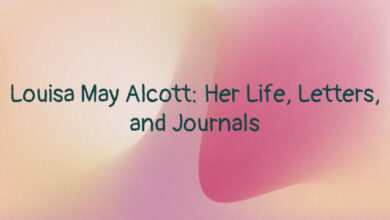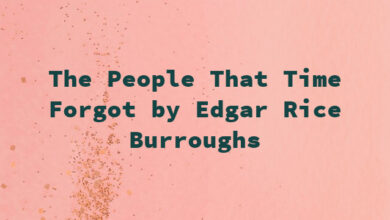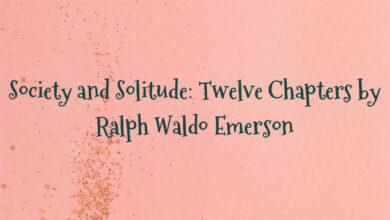
Kitty of the Roses by Ralph Henry Barbour
Chapter IX
It was June once more.
Burton had been in Washington for two days; it was Tuesday evening now and his business was at last completed. He had earned a vacation, he told himself, and he meant to take it. Washington was maintaining its reputation for torridness, and when at the lunch-table an acquaintance had pictured a mile of cool green waves breaking on the shingle at Virginia Beach and had likened the sea-breezes there to a million electric fans, Burton had made up his mind on the instant. He would take the night boat for Hampton and spend the morrow by salt water; the thought of cleaving his way through gurgling, hissing combers was so enticing that the rest of the hot, humid afternoon was almost endurable.
He took the little steamer after dinner, just as the weary sun was sinking back of the miles of parched brick and fetid asphalt. He was tired, and he meant to go to bed early, but the deck was comparatively cool and the little box-like state-room was incomparably hot, and so darkness found him still smoking with his feet on the rail. Near at hand two men were talking lazily, but he gave them no heed until one said:
“Belle Harbour? Yes, over there where you see the lights. We stop there. Say, have you ever been there? Well, of all——”
Burton listened no longer. Belle Harbour—the Enchanted Garden—and Kitty! How long ago it all seemed, to be sure! And yet the mere mention of the sleepy old town set his heart a-racing and the memory of the girl amidst the roses still never failed to bring a frown to his brow and a queer little ache to his breast. It was June once more, he thought, and the garden would be gay and fragrant with the waving blooms, but Kitty——
He dropped his feet from the rail and sat up suddenly in his deck chair. But would Kitty be absent? Wasn’t it far more probable that she would be at home, there in the garden, now that rose-time had come? It was a long cry from Algiers to Virginia, and yet, as he gazed across the dark water to the few scattered lights, he felt certain that the girl he loved was there.
Only twice since she had gone abroad had he had tidings of her, though he had searched the foreign pages diligently. Once her name was among a list of persons who had registered at the Herald Bureau in Paris: that was in September. In January the paper had mentioned Colonel Simpson Barrett as having been a guest at a Government function given in Algiers to a visiting potentate. That was all. He had instructed Mrs. Phillips to advise him the instant the Colonel and his niece returned to Mary Street, but such advice had never come. And yet—and yet something seemed to tell him that Kitty was back among the roses, that the Castle once more held the Princess!
The steamer sidled across the black waste of water with a warning screech and much tinkling of bells. The lights on the wharves grew brighter and brighter. Burton tossed his cigarette into the wake and sought his state-room. Virginia Beach and rolling waves and sea-breezes were forgotten. The steamer bumped against the spiling and a voice droned:
“Belle Harbour! All off for Belle Harbour!”
A solitary figure, laden with suit-case and umbrella, strode down the gang-plank.
As Burton turned into King’s Street and walked along under the motionless branches of the arching oaks he caught dim glimpses of white-gowned figures on doorsteps and heard young voices. Once the tinkling of a mandolin floated across the street, and with it the sound of a girl singing softly in the darkness. It was June once more, the month of roses and of love! Burton went on with a new lightness in his heart.
“How things do happen!” exclaimed Mrs. Phillips, leading the way upstairs. “The Colonel got back yesterday, and I was just this minute hunting for pen and paper to write to you! Mr. Burton, that is surely a coincidence!”
“It is indeed, Mrs. Phillips. Er—I presume the Colonel brought his family back with him?”
“Well, now, sir, he hasn’t got much family to bring, but he brought what he had—his niece, Miss Fletcher, you know.”
“Ah, his niece? Indeed! There’s nothing I shall want, thank you. I think I will go out again for a stroll. If you will ask the worthy Robert to remember my existence in the morning——”
Out under the oaks again, Burton lighted a pipe and set off in an aimless manner down King’s Street. But at the first corner he turned to the right without hesitation. The third house held a solitary light. He stood for several moments across the way watching it, and then, humming a tune from sheer gladness, strolled on. At the next corner he again took the right-hand turning, and presently the tower of the old church arose, murky-white, against the starlit sky. The green, dotted with its crumbling tombstones, invited him in through the open gate. As he passed the church door he saw that the building was lighted, and simultaneously the sound of voices reached him. Wondering, he stepped noiselessly to a window and looked in.
A little group of men and girls were congregated near the farthest door and a second group stood beside the chancel. There was much talking, and what was said he could not hear. But as he looked the group at the door ranged itself in couples, from the organ loft came the first notes of the wedding-march, and the procession started up the aisle. At the same moment Burton’s heart stood still. Back of the first three couples—apparently the ushers—a middle-aged gentleman and a girl came. For the man Burton had no eyes, but at the girl he gazed fixedly, hungrily. It was Kitty of the Roses!
Up the nearer aisle marched the bridegroom and the best man. The organ’s notes rose and sank. Burton, with a vague disquiet at his heart, watched frowningly. “A rehearsal,” he told himself. The ushers turned at the end of the aisle and took up their stations. Bride and bridesmaids went slowly onward to the chancel; groom and best man advanced to meet them. Then the organ’s notes died away and with them went Burton’s happiness.
Side by side before the empty altar stood the bridegroom and Kitty!
Burton turned away from the window and stumbled blindly down the gravel driveway that led through the darkness to King’s Street. His hands clinched themselves fiercely and his heart was like lead. At the gate he paused and relighted his pipe with fingers that trembled. Then he laughed softly and walked homeward.
“You’re too late, old man,” he muttered, “too late!”
When he was ready for bed he blew out the lamp and drawing a chair to the open window sat and smoked many pipes and looked miserably down onto the darkened rose-garden. In the Castle all lights were gone. The town was silent save for a distant whistle from the direction of the railroad or the occasional cheep of a circling bat.
“Kitty!” he murmured once, “Kitty!” Then he closed his lips resolutely, grimly, over the stem of his pipe.
God! how he hated the fragrance of roses!
Chapter X
The north-bound train left at eleven; his bag stood in the hallway; his watch said ten minutes of nine. Two dreary hours remained before he could shake the dust of Belle Harbour from his shoes for the last time.
There is a strain of morbidness in the most healthy of us and Burton was no exception. That, perhaps, is why, after vainly striving to find interest in the Washington morning paper, he lighted the inevitable cigarette and went out into the yard.
It might well have been a morning of a year ago; everything was unchanged. The Daphne-tree threw its grotesque shadows on the turf; the iris bloomed along the old wall; the birds sang and called from the boughs; and beyond the iron fence the roses were courtesying and swaying—flares of pink and yellow, white and red—on their slender stalks; the Enchanted Garden was as beautiful as ever. Burton, his hands behind his back, a little stream of smoke curling up from under his moustache, stood in the shade of the tree in the corner and viewed the scene with unresponsive eyes. It was all over, he told himself for the fiftieth time—over and done with, dead and buried. In an hour or two he would put the memory of it out of his heart; until then, though, what harm in——
There came the sound of an opening door from beyond the rose-garden. At the top of the steps stood a girl in a muslin gown and a broad-brimmed hat. The gown was caught at her waist with a sash of light blue ribbon. With one gloved hand she held a basket, with the other her skirts. For a moment she stood there in the half-shadow of the rose-vines looking thoughtfully over the sea of color that broke at her feet. Over the garden her gaze wandered to the farther end, to the neighboring house, to a window open to the morning sunlight; and suddenly a flush of color ran riot over her cheeks, then faded. She stepped down to the path between the box hedges, and Burton, watching from beyond the fence, lost sight of her.
He contemplated retreat; he even reached a point half way to the side door; then he stole back, like a thief, to the shade of the Daphne-tree and waited there, his heart galloping and plodding by turns; waited for just one more sight of her, for a word before he went away. He could hear the snipping of her scissors and, as often before, could catch a glimpse now and then of her hat above the bushes. He waited and tried to think of things to say, things which would tell nothing of his heart-sickness. And, ere he had prepared his speech of greeting, she turned the corner of the path and stood gazing full upon him.
She was surprised; oh, yes, she must have been surprised, for the color came and went in her cheeks and her lips parted breathlessly as she bowed to him. Burton removed his hat and took a step towards the fence. But he said nothing; nor did she; and the next instant they were gazing at each other again in silence over the topmost leaves. Burton made a desperate effort; he advanced to the fence and with a picket in each hand for support uttered a remark masterly in its originality, utter simplicity, and veracity,—
“A lovely morning?”
“Yes,” she answered. The blushes were gone, leaving her clear, soft cheeks paler than before. She moved towards the fence until, had he stretched forth his hand, he could have almost touched her gown. She was the same Kitty, he thought with something of wonder; a year had made no change in her that his eyes could discern. And yet—perhaps—she seemed graver, though not a whit less sweetly fair and gracious.
“A year makes little difference to a Princess,” he said smilingly.
“It leaves her a year older,” she answered.
“But perhaps, after all, it hasn’t been a year. Perhaps it was only yesterday that you left me here and went up the path and into the Castle; I could almost believe it.” She shook her head.
“Things have happened since then,” she replied with a little sigh. He echoed the sigh; did not he know it?
“Yes, I suppose so. You’ve travelled much and seen many things since that morning.”
rose02 “Yes.” She showed no surprise that he should know.
“And——” But he stopped. “The Ogre is well, I trust?”
“Very well,” she answered with a laugh.
“You know you fooled me there.”
“Not I; you fooled yourself. We found your card when we returned yesterday.”
“Yes. I remember.” He looked thoughtfully at one of his thin, sunburned hands.
“My uncle will be glad to see you,” she went on a little breathlessly. “He was saying so this morning.”
“You are very kind,” he said, “but I fear I can’t give myself the pleasure of calling upon him this time. I am leaving for the North at eleven o’clock.”
“Oh!” she said. There was silence between them. Then,—
“Are those for the church?” he asked, indicating the roses in the basket.
“The church?”
“Yes, the—the wedding is to-night, I presume?”
“Yes, to-night; but these are not for that. They are having a florist in Washington do the decorating.”
“I see.” He put a hand inside his serge coat and drew forth a pocket-book. From it he brought to light a flattened, crumbling rose. He held it forth, smiling bravely.
“I want you to accept this as a present,” he said lightly. “It is no longer very lovely to look at, but”—with a bow of artificial gallantry—“it has been what I prized most in the world.”
“A present?” she repeated, while a tinge of color crept into her cheeks. “You mean——”
“A wedding-present, yes.” He wondered whether the smile on his face looked as ugly as it felt! She looked from the rose in his outstretched palm to his face and back again to the rose with a puzzled expression in her brown eyes.
“But I don’t understand,” she said.
old Christ Church “I beg your pardon,” he answered gravely, “it was a poor joke.” He began to slip the dried blossom back into his pocket-book.
“But I will accept it,” she cried, and held forth a small hand. “I will take it as a wedding-present, although it is somewhat ahead of time.”
He placed it in her hand, looking, in turn, puzzled.
“But you said it was to-night—the wedding?”
“But why should you give me presents?”
“Why—but—you’re to be married!”
She shook her head, smiling across at him with a new light in her eyes.
“Not I, alas!” He stared back in bewilderment.
“But I saw! I looked in the window last night!”
“And you thought I was the bride?” She laughed deliciously. “Didn’t you know that it was bad luck for a bride to take part in a rehearsal? I was only a substitute, you see.”
rose05 “Kitty!” He had seized her hand and was gazing rapturously into her eyes. “Kitty!”
The lids fluttered down over the brown depths. The hand trembled.
“You—you’re crushing my rose,” she whispered.
“Kitty!” he cried again, releasing her hand as though it were life itself, “tell me again that it’s true!”
“True that I was only a substitute bride?” she asked tremulously, with hidden eyes. “Yes, it’s quite true, sadly true.” She looked up with an attempt at exaggerated woe, but when she saw his face she averted her own again and gave all her attention to the crushed rose in her hand. “I—I must be going now,” she said.
“Going? No, you mustn’t go!” he cried.
“I must,” she murmured from the safe distance of a yard away. “Good-by.”
“Good-by?”
“You are going North, are you not?” she asked innocently.
“North? I? Never!”
“Oh!” said Kitty.
“North!” he repeated witheringly. “I’m not such an idiot! I lost you twice, Kitty, and now—now I’m not going to let you out of my sight!”
“I fear you’ll have to,” she laughed, with a shake of her head, “at least as far as the house.”
“I shall follow!”
“You mustn’t.”
“But you said your uncle——”
“He won’t be at home until dinner-time.”
Burton groaned.
“But you’re coming back into the garden, aren’t you, after awhile?” She shook her head again.
“No, you forget the wedding,” she answered.
“Hang the wedding, Kitty!”
“I—I don’t think you ought to call me Kitty so—so much,” she protested.
“Don’t you?” he scoffed. “Kitty—Kitty—Kitty! But—but there’s another name I know, and if you like I’ll call you that—Kitty; shall I? May I tell you what it is—Kitty?”
“No, I—I don’t think so,” she answered in sudden alarm. She moved away as though meditating flight. “Good-by,” she said again.
“But it’s not good-by,” he pleaded. “I may come this evening, mayn’t I?”
“If you are not afraid of the Ogre,” she laughed.
She moved farther.
“Kitty,” he called softly.
“Yes?”
“It begins with an S!”
“It?—Oh!”
She fled to the house.
Chapter XI

A cool breeze, moist and fresh from the river, was blowing across the garden, stirring the leaves to sleepy rustlings and wafting the fragrance of thousands of roses into the evening air. There was no light save the soft radiance of the stars; no sound save their voices as they strolled slowly back and forth between the hedges and swaying blossoms.
“A confession?” he was saying.
“Yes,” she answered. “I wonder if you will absolve me?”
“Kitty——”
“Wait until you hear,” she advised solemnly. “There was a paper.”
“A paper?”
“Yes, I found it on the path that first morning. It must have blown through the fence, you see. I picked it up; I didn’t know what it was. Afterwards, in the house, I found it in among the roses and—and I saw something on it that made me—made me read it. Was it frightfully wrong?”
“Wrong? No, but what was it?”
“It was ‘Kitty’!”
“But the paper?”
“Don’t you remember?” she asked wonderingly. “Really?”
“Really!”
“Well——” She took something from the bosom of her dress and spread it out in the half-darkness. Then, “Listen,” she said: “‘Belle Harbour, Virginia, June the third. She’s coming; she’s almost in sight. I don’t quite know what I am writing. The situation grows intense. Will she——’”
“I remember!” he cried. “And you found that? And you knew, then, that——”
“Listen,” she said sternly. Again she bent over the paper. “‘Will she retreat or advance? I can see the white of her gown through the leaves. She is almost at the corner of the path. My courage is ebbing fast; if she delays much longer, I shall beat a disordered retreat myself. Now! She’s coming, coming, coming—she’s here——’”
“Kitty,” he cried, “you’re not reading! You couldn’t in this light.”
“I don’t need to,” she said with a little, soft laugh, “I know it by heart. ‘Had I the courage I would ask for a parley, but, alas! I am already wavering along my entire line; I can only put up a brave front and rely upon awing her. She is delicious, simply delicious. Her eyes——’ What about my eyes? You stopped there.”
“Your eyes? Your eyes—your eyes——” He paused, at a loss for words. She sighed dolefully.
“There, you’ve stopped again! I reckon I’ll never know,” she mourned.
He took her hands and turned her about until the light of the stars was full upon her face.
“Your eyes, Kitty—ah, I’ll spend my life, sweetheart, telling you about your eyes!” They dropped before his own ardent ones. “Was it—was it then, Kitty?” he whispered.
“What?” she murmured.
“That you cared for me?”
“I—I think so!”
With sudden shyness she broke from his clasp and went forward up the path. When he caught up with her she was bending with her face almost buried in a great cup-like rose. He stooped and placed his cheek against hers and their hands met and caught.
“Ah, dear, dear roses,” she murmured tremulously, “how I love you, how I love you!”
“And me, Kitty?” he whispered in her ear.
She raised her head and laid her hands upon his arms, looking up silently into his face. About them the roses whispered and nodded in the breeze. He bent until his lips were upon hers.
“Kitty,” he cried softly, “my Kitty! Kitty of the Roses!”




